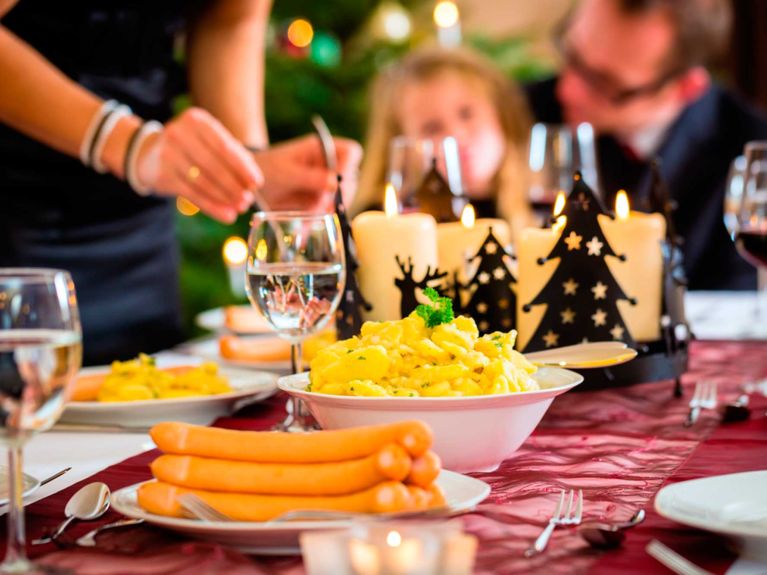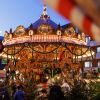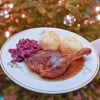How Christmas is celebrated in Germany
Spending Christmas with the Germans: Which rituals are important and why potato salad is part of a traditional celebration.

The first foretaste of Christmas already comes in early September when gingerbread and Spekulatius biscuits suddenly appear on supermarket shelves out of the blue. From the first Sunday of Advent, Christmas markets, Christmas hits on the radio and fairy lights bring festive cheer to the entire country. But German Christmas has many facets and distinctive features - here are answers to the most important questions.
Do only religious Germans celebrate Christmas?
No. Although it is a Christian festival to celebrate the birth of Jesus Christ, Germans with no particular religious beliefs also celebrate Christmas - around 80 percent of the population in all. Fewer and fewer people in Germany go to church at Christmas - just 16 percent in 2024. This is significantly down on the pre-pandemic level (2019: 24 percent). Increasingly, people in Germany don’t celebrate Christmas for religious reasons but because they see it as a time for the family to come together to enjoy shared rituals. This was revealed by a study conducted by the University of the Bundeswehr in Neubiberg.
Which German Christmas traditions are there?
One of the most popular and best-known customs is to put up and decorate a Christmas tree. More than eight out of ten people in Germany put up a Christmas tree. One in three say they only feel really Christmassy once their home is filled with the fragrance of fresh fir and shiny baubles are glittering on the tree.
And what do Germans give as gifts? The most popular present by far is a gift voucher - or indeed just cash: nearly one in two people (48 percent) opt for this solution, according to a study by consulting firm EY. Food and confectionery take second place (36 percent), closely followed by toys (33 percent), printed books (31 percent) and clothing (30 percent).
How is Christmas typically celebrated on the day?
There are two days of Christmas in Germany, the 25th and the 26th of December. For many people, Christmas Eve, on the 24th of December, has a hectic morning part and a festive evening part. If Christmas Eve falls on a weekday, shops remain open until noon and tend to be packed as people rush to buy their last remaining presents or food for the festive meal. Then it’s time to decorate the Christmas tree with fairy lights and baubles, to wrap the presents and prepare the meal.
Families get together in the early evening. Some have family traditions such as singing or playing music together. After the meal, the presents that are under the Christmas tree can be unwrapped. Children write their wish lists weeks before Christmas and wait excitedly to discover whether they will get the presents they want.
Young adults who have returned to their home town to see their family at Christmas often head out again late in the evening to meet up with old friends.



